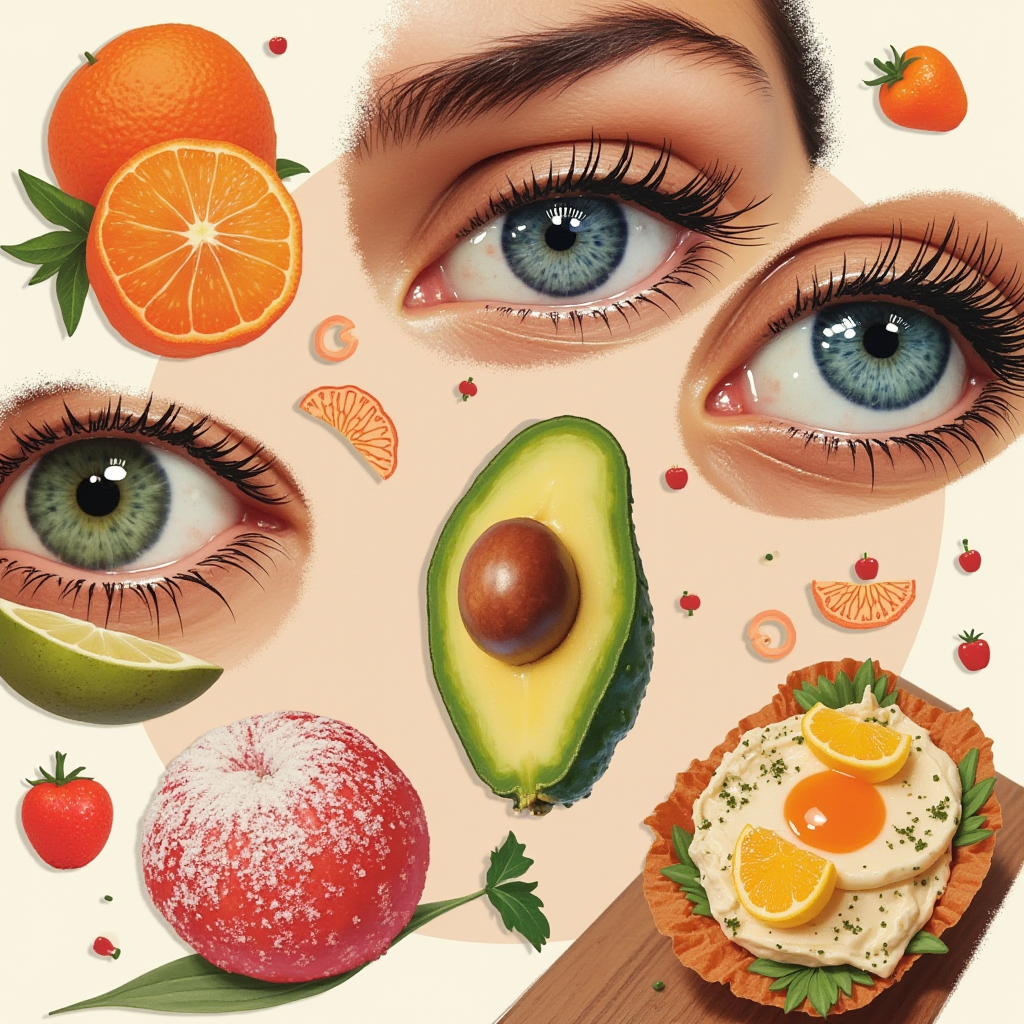The Best Foods to Eat for Healthy, Radiant Eyes

Do your eyes feel itchy, dry, and tired? In our digital age where screens dominate our lives—whether at work or leisure—it’s common to experience these discomforts. With the average American adult spending around seven hours a day on various screens, it’s no surprise that many report symptoms of digital eye strain such as blurred vision, headaches, and dry eyes.
But beyond reducing screen time, there are other ways to nurture our eyes: nourishing them through diet. A well-balanced diet rich in specific nutrients can enhance eye health significantly. Here’s a closer look at the best foods to eat for maintaining healthy, radiant eyes.
Omega-3 Fatty Acids
Omega-3 fatty acids are renowned for their anti-inflammatory properties and their ability to stimulate tear production, helping soothe dry eyes. A study indicates that a diet rich in omega-3 can reduce the symptoms of dry eyes by up to 17 percent.
- Oily Ocean Fish: Salmon, mackerel, sardines, herring, and tuna are excellent sources.
- Plant-based Options: Flaxseed, chia seeds, walnuts, and hemp seeds also boast high omega-3 content.
A balanced intake of omega-3 from both animal and plant sources is ideal for optimal eye health.
Vitamin E: Your Eyes’ Shield
Blue light, emitted by screens, can penetrate deep into our eyes, leading to potential damage. Vitamin E acts as a protective antioxidant, shielding the cells in your eyes from free radicals and reducing sensitivity to bright light.
- Vegetable Oils: Sunflower oil, olive oil, and wheat germ oil are rich sources.
- Nuts and Seeds: Almonds, hazelnuts, sunflower seeds, and dandelion leaves provide substantial amounts of vitamin E.
- Leafy Greens: Spinach and chard are also beneficial for their nutrient content.
Incorporating these foods into your diet can help protect your eyes from blue light damage.
Vitamin C: Clear Vision’s Ally
Known for its immune-boosting properties, vitamin C also plays a crucial role in preventing cataracts. Adequate intake of this vitamin can slow down the clouding of lenses and significantly reduce the risk of developing cataracts.
- Fruits: Acerola cherries, black currants, guavas, kiwis, oranges.
- Vegetables: Red peppers, kale, Brussels sprouts, broccoli, spinach.
Eating a variety of colorful fruits and vegetables ensures you get enough vitamin C to support eye health.
Zinc: Essential for the Retina
Zinc is crucial in maintaining a healthy retina, aiding in transporting vitamin A and supporting vision under varying light conditions. It can also reduce the risk of retinal issues as we age.
- Animal Sources: Oysters, beef, pork, chicken.
- Plant-based Options: Pumpkin seeds, lentils, chickpeas, beans, oats, sesame seeds, hemp seeds, cashews, cheese, and yogurt.
Diversifying your zinc sources helps in keeping your retinal health robust.
Vitamin A for Enhanced Night Vision
Vital for night vision, vitamin A aids the production of rhodopsin—a pigment that enhances vision in low light. However, it’s important to focus on obtaining this nutrient from plant-based foods like beta-carotene-rich sources, which your body can convert into active vitamin A.
- Plant Sources: Carrots, sweet potatoes, pumpkin, goji berries, chicory, dark green leafy vegetables, red peppers, mangoes, and papayas.
For optimal absorption, pair these foods with a source of healthy fats like olive oil or avocado.